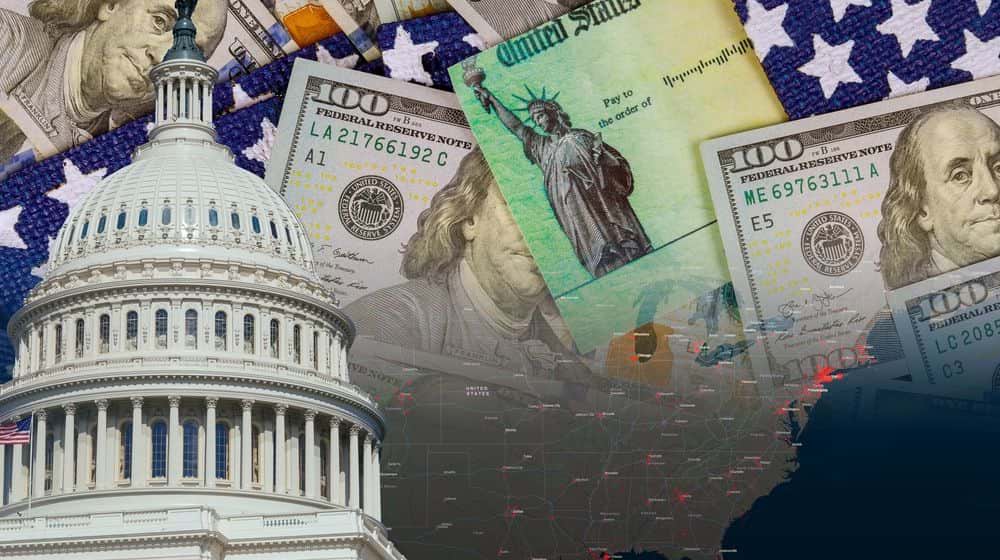Breaking News
Unemployment Benefits and the Coronavirus Relief Package

Last week, President Trump signed a $2 trillion coronavirus relief bill into law. The package will inject billion of dollars worth of financial stimulus into the economy and expand unemployment benefits for millions of workers who have lost their jobs as a result of the pandemic.
The COVID-19 bill authorizes billions of dollars in expenditures for business loans and direct payments for taxpayers. However, unlike direct payments, unemployment benefits are only available for qualified workers who have been laid off because of the virus.
Qualifying for Unemployment Benefits
3.8 million U.S. workers filed for unemployment benefits last week, raising the total layoffs since the coronavirus hit to 30.3 million. That's more than 1 in 6 American workers. Previous story: https://t.co/N1tgoI9bA6
— CBC News Alerts (@CBCAlerts) April 30, 2020
Generally, workers who have been laid off from their jobs qualify for unemployment benefits. Unemployment is administered at the state level, so acceptance conditions vary on a state-by-state basis.
However, many states are loosening their restrictions in response to the crisis. Some states are allowing workers who would not typically qualify to access benefits, including quarantined workers or workers with no access to paid leave.
Typically, only W4 workers qualify for unemployment benefits, but the new law expands the criteria to include self-employed individuals. The newly created ‘Pandemic Unemployment Assistance’ program extends benefits to gig workers, freelancers, and contractors who normally wouldn’t qualify for unemployment compensation.
Quarantine and Care Givers
Unemployment benefits are also available to workers who have been forced to stay home as a result of the virus. You just have to certify that you’re normally willing and able to work but you can’t as a result of the virus.
This condition isn’t limited to people who test positive for the virus either. If your job has asked you to stay home because of cold symptoms, you can still qualify for unemployment benefits regardless of whether you were actually infected.
You can also claim benefits if you’re taking care of a member of your household or family who has been diagnosed with the illness.
Benefits
The bill provides additional cash benefits for unemployed workers.
If you qualify for benefits, you will receive $600 per week plus half of the average unemployment benefits in your state. Unbelievably, the $600 per week payment applies regardless of your average paycheck, so you could actually earn a lot more collecting unemployment benefits than you did at your job.
The additional $600 benefit is available for a maximum term of 4 months.
Taxable Earnings
Your unemployment check isn't 'free money' — most Americans will end up needing to pay federal and state taxes in most jurisdictions. Here’s what you need to know to avoid any unpleasant surprises down the line https://t.co/IpSovFiGUD
— Megan Leonhardt (@Megan_Leonhardt) May 19, 2020
Be aware that any unemployment benefits you collect are treated as taxable income.
You need to claim them on your 2020 taxes or you could be subject to IRS penalties and interest.
Part-Time Workers
Some states allow part-time workers to qualify for unemployment benefits, but it varies from state to state. You need to check with your state’s unemployment office to see what their policy is on benefits for part-time workers.
Keep in mind that many states are loosening the restrictions in the wake of the crisis so you should check to see if you qualify even if you haven’t in the past.
Hours Cut
The bill also provides funding for workers who are still working but have had their hours cut. If you’re getting fewer hours at work as a result of the outbreak, you could qualify.
However, this is another issue that will be determined largely by individual states. The bill provides funding for states that want to issue benefits for workers in this situation, but it’s letting the individual states decide how they want to handle it.
A Lifeline for Millions
Overall, the bill provides major fiscal support for millions of Americans. This package is very generous, and you could even make the argument that they went a little overboard. However, you wont’ hear any complaints from the millions of Americans who lost their jobs.
The uncertainty created by the outbreak has been a major stressor for many unemployed workers, but at least they won’t have to worry about how they will be able to afford their living expenses for the next few months.












